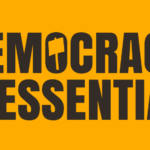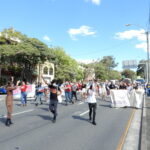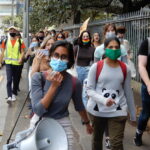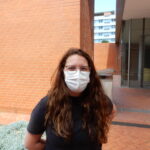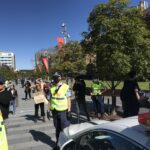“A Massive Victory”: Democracy Is Essential’s Eleanor Morley on Lifting the Protest Ban
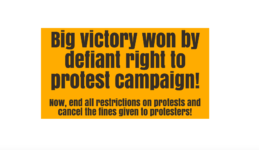
As NSW police officers began picking up Sydney University students non-violently protesting and, at a distance, hurling them onto the footpath, it was quite clear that something had gotten out of hand. And it seems that state authorities finally agreed.
A little over a week after the protest at Sydney Uni, the NSW government amended the public health order on gatherings, so that it’s now possible for up to 500 people to gather together in public to protest a “governmental or political matter”.
Prior to this, NSW police had been arbitrarily enforcing an unofficial ban on political demonstrations of more than 20 people based on some rather inoffensive looking provisions contained in the health order. And as the prohibition period grew, so too did the force applied to those disobeying it.
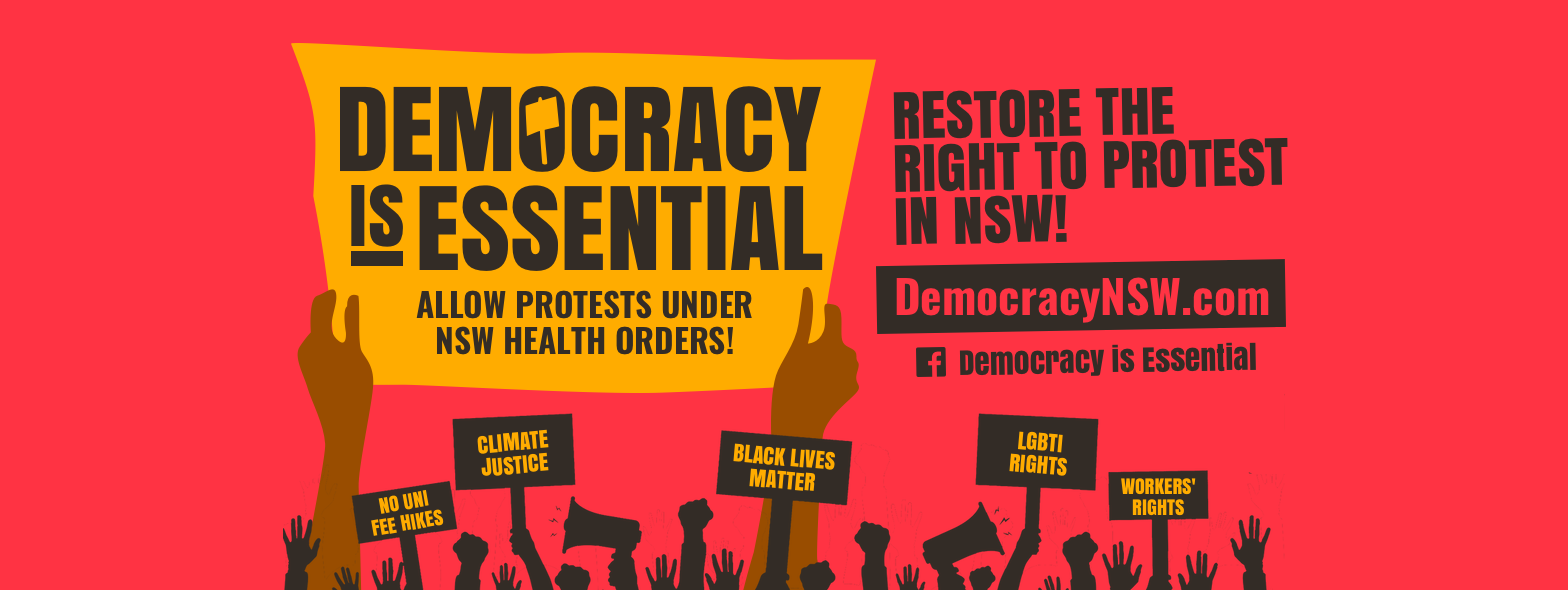
Busting the ban
The gathering for “a common purpose” protest ban was first applied at a 28 July Black Lives Matter rally at the Domain, and just days later, officers pulled it out of their tool box again at a modest demonstration against higher education cuts at Sydney University.
And from that point on, the Sydney Uni campus became the focal point of the resistance to the state’s attempt to silence dissent.
Initially, students tried to mobilise within the limits of the ban, however police moved in and busted up these COVID safe demonstrations.
So, the students went on to form Democracy Is Essential. Supported by numerous civil society groups, the campaign worked on the premise that the only way that the right to protest was going to be reinstated was to break the ban and get out on the streets.
And in applying this strategy, the campaign succeeded.
Sydney Criminal Lawyers spoke to Democracy Is Essential spokesperson Eleanor Morley about the campaign impact, the force NSW police unleashed upon the last protest, and how the campaign now aims to see the right to protest completely reinstated without any restrictions.
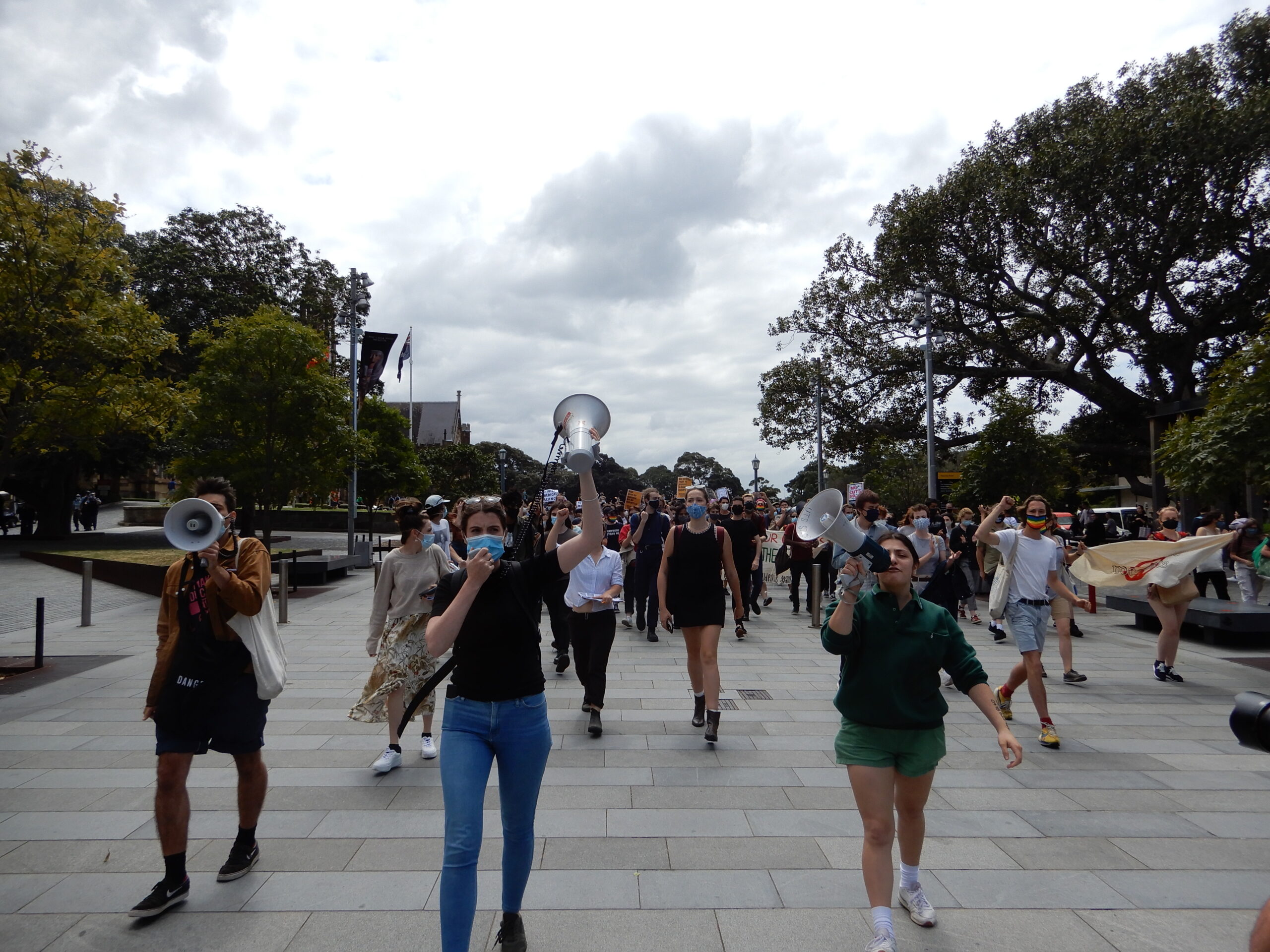
Firstly, Democracy Is Essential was established in early September to campaign for the reinstatement of the right to protest in NSW.
Last Friday, the public health order on gatherings was amended to allow for protest actions of up to 500 participants.
Eleanor, what do you think about the unofficial protest ban lifting? And what led to it being revoked?
This is a massive victory for the Democracy Is Essential campaign.
For the past three to six months, we’ve not been able to hold any protests that haven’t been – at times violently – repressed by the police.
Committing to a strategy of defiance, and not capitulating to the artificial ban is what eventually won it for us.
Over the past month, there have been a number of defiant and confrontational protests that have increasingly gained a lot of media coverage and public outrage over the ban, the hypocrisy in the application of the public health order, and the level of police repression against peaceful protest.
The media attention and the public outcry is what led the state government to reverse it.
The public health order now stipulates that COVID safe groups of up to 500 people are allowed to gather in public to protest or demonstrate against “governmental or political” matters.
Is the campaign satisfied with this outcome?
Not entirely. There shouldn’t be any restrictions on the right to protest.
First of all, it’s still pretty galling that 40,000 people can enter a football stadium, hundreds can lie on Sydney’s beaches, and thousands of people can gather in train stations, yet the government said only 500 people are allowed to protest.
Protests are more effective the bigger they are. So, we’re not happy with the 500 person limit. And we’re going to continue to campaign to end restrictions on protests.
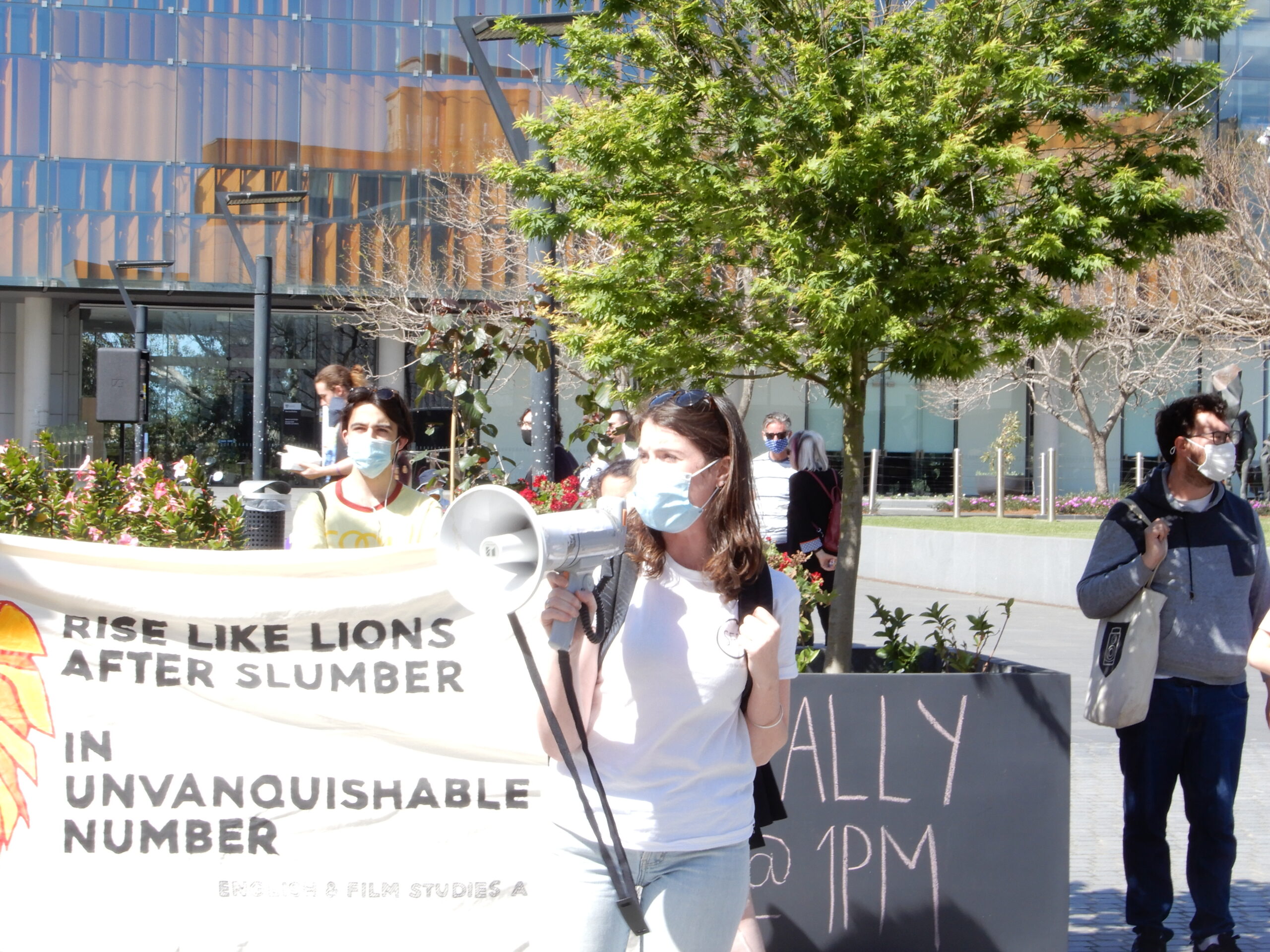
As you’ve touched upon, the University of Sydney was central to the campaign to reinstate protests.
A series of demonstrations took place on campus over several months, which culminated in a significant show of force by police at a 14 October demonstration.
How would you sum up the force used by NSW police at that last protest?
Their force was excessive, at times, brutal and anti-democratic. Law professor Simon Rice had his legs kicked out from under him, and was arrested and fined, even though he was an observer of the protest.
A friend of mine, Shovan Bhattarai, was literally hurled through the air onto the ground. She’s had to see a doctor about five times over the past fortnight, because of the injuries that occurred at that protest.
Legal observers were arrested. One of them had his phone thrown to the ground and stamped on by a police officer, because he had been filming the violent arrests.
It was an escalation of police violence against peaceful protests. And it’s something that’s entirely antithetical to a democratic country.
So, what sort of impact would you say your campaign has had? And what has been learnt by it?
The impact is the victory. First of all, we pointed out to the broader public that up until last Friday, citizens of NSW did not have the democratic right to protest.
We were successful in getting that message out there.
Throughout the course of the campaign, we’ve been able to draw together activists from a variety of different social justice campaigns and also brought new people into activism.
Despite the efforts of the police and despite the police repression, the impact it’s had on people is they’ve felt emboldened, more confident and have gotten a sense of things that can be achieved through political protest.
So, it’s in turn strengthened all those other campaigns: trans rights, Black Lives Matter and the campaign against cuts to higher education.
And lastly, Eleanor, what’s the next step for Democracy Is Essential?
The next thing we will be doing is organising and supporting a collective legal challenge to the over $50,000 in fines that have been handed out to protesters over the past few months.
We’ll also be going to a court hearing for someone who was charged at the Community Action for Rainbow Rights rally. That’s next week, in conjunction with that campaign.
And we’re now starting discussions about what the next steps will be in terms of opposing all restrictions on the right to protest in NSW.


